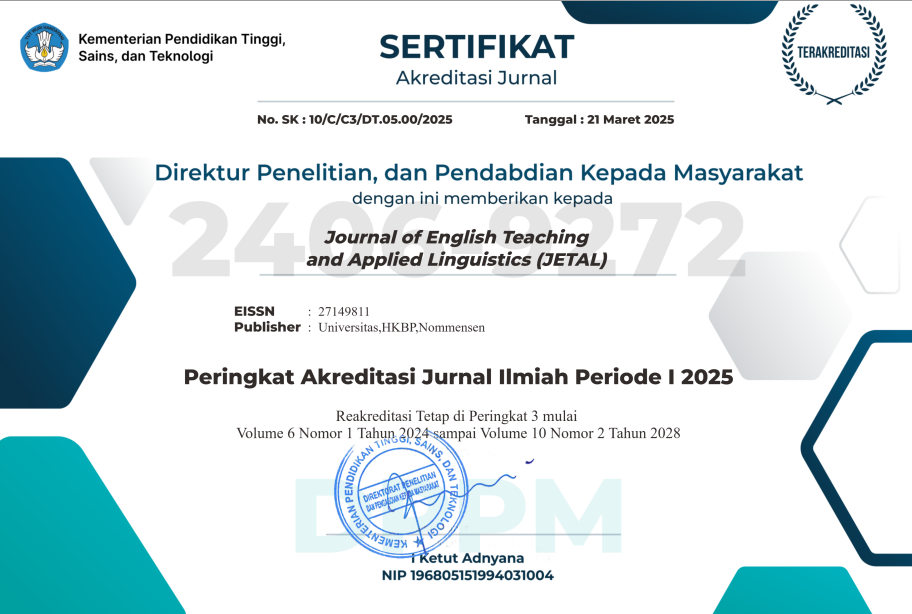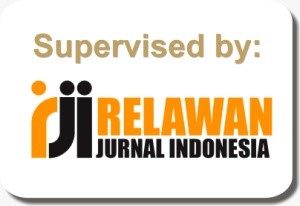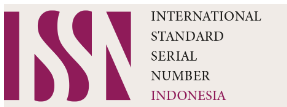Impacts and Effective Communication on Generation Z in Industrial Revolution 4.0 Era
Abstract
Generation Z (Gen Z), those who were born between the mid-1990s until mid-2000s are closely related to the emerging Indistrial Revolution 4.0 (IR 4.0) era. Both positive and negative impacts towards the social development and communication of Gen Z are apparent. The purpose of this study is to descibe the influence of technology on Gen Z and to discuss the effective means of communication when interacting with this group of people. A systematic review and documentational analysis approach is adopted. The outcome of this study indicated that advancement in technology has hugely affected the social communication skills of Gen Z. It is suggested that the means of approaching this generation requires comprehending their way of thinking, communicating with them in their “tech-language”, and to always be updated with the advancement of information technology (IT), thus ensuring relevance to be in their environment. All these requires groundwork efforts to have direct interaction with them according to the ways of Gen Z.
References
Aziz Ujang, Jamaluddin Md Jahi, Kadir Arifin, Kadaruddin Aiyub. (2014). Kesedaran Generasi Muda Terhadap Patriotisme dan Perpaduan Nasional di Malaysia. International Journal of the Malay World and Civilisation (IMAN), 2(2); :31-39.
Azizan Bahari, Abdul Rahman Aziz & Azimi Hamzah. (2004). Generasi Muda Menanagani Cabaran. Alor Star: Yayasan Dr Rodzi.
Don Tapscott. (2008). Grown up Digital: How the Net Generation is Changing Your World. London: The McGraw-Hill.
Gonzales-Mena, J. (2006). The young child in the family and community. New Jersey: Pearson Merril Prentice Hall.
Hafiza Abas, Rahmah Lob Yussof, Zulkifli Tukima, Roslinda Ramli, Aminudin Hehsan, Badlihisham Mohd Nasir. (2017). Apps: Platform Dakwah Untuk Generasi Y Dan Z. 3rd International Seminar on Da'wah.
Hairol Anuar Hj Mak Din. (2017). Klasifikasi Generasi di Malaysia. Persidangan Antarabangsa Sains Sosial dan Kemanusiaan (PASAK 2017). Bangi: Kolej Universiti Islam Antarabangsa Selangor (KUIS). 26 – 27 April.
Hinde R. A., (1975). Non-verbal communication. London; Cambridge University Press. improving team communication. Mental Health Practice, 16(5), 29-31.
Jamiah Manap, Sidek Baba, Nik Suryani Nik Ab. Rahman dan Haniza Rais. (2013). Pendekatan Komunikasi Keibubapaan dalam Keluarga Ibu Mithali. Journal of Human Development and Communication, 2; 73-87.
Karim Harun, Saadiah Maalip, Maslida Yusof & Kartini Abd Wahab. (2017). Mendepani Generasi Z Dalam Pengajian Bahasa Melayu. SEBAHTERA2017. Seminar Bahasa, Sastera dan Bahasa Melayu. Transformasi Pengajian Melayu dalam Era Generazi Z.
Kolb, D. A. (1984). Experiential learning as a source of development. New Jersey: Prentice Hall.
Mahat Jamal. (2015). Semangat Patriotisme Melalui Lagu-Lagu Patriotik: Kajian Persepsi Beberapa Orang Belia di Kota Kinabalu, Sabah. Jurnal Komunikasi Borneo, 4.
Maria Torocsik, Krisztian Szucs & Daniel Kehl. (2014). How Generations Think: Research on Generation Z. Acta Universitatis Sapientiae. Communictio. 23-45.
Mawar Safei. (2017). Kesusasteraan Melayu Dalam Era Generasi Z. SEBAHTERA2017. Seminar Bahasa, Sastera dan Bahasa Melayu. Transformasi Pengajian Melayu dalam Era Generazi Z.
Mior Khairul Azrin Mior Jamaluddin. (2011). Sistem pendidikan di Malasyia: Dasar, Cabaran dan Pelaksanaan ke Arah Perpaduan Nasional.Sosiohumanika, 4(1).
Mohd Amin Embi. (2016). Pemikiran dan Reka Bentuk Semula Pengajaran dan Pembelajaran Abd ke-21. Syarahan Perdana UKM. Bangi: Penerbit Universiti Kebangsaan Malaysia.
Mohd Rumaizuddin Ghazali & Mohd Rushdan Jalani. (2015). Kajian Semangat Patriotosme dan 1Malaysia dalam kalangan Mahasiswa di Timer Tengah. Journal Abqari, .5.
Nur Azlina Jalaluddin & Nurhasyinda Shahidan. (2017). Modenisasi Bahasa di Kalangan Gen Z. Persidangan Antarabangsa Sains Sosial dan Kemanusiaan kali ke-2. 26 – 27 April. Selangor: KUIS.
Oblinger, D.G. & Oblinger, J.L. (2005). Is Li Age or IT: First Steps toward Understanding the Net Generation, in Educating the Net generation. Diana G. Oblinger & James L. Oblinger. http://www.educause.edu/educatingthenetgen/.
Rahmi. (2015). Tokoh Ayah Dalam Al-Quran Dan Keterlibatannya Dalam Pembinaan Anak. Kafa’ah. Jurnal Ilmiah Kajian Gender, 5(2).
Safinah Ismail. (2018). Elemen Komunikasi Bapa Dalam Surah Luqman. 4th International Conference on Islamiyyat Studies 2018 18th-19th September 2018. Tenera Hotel. Bandar Baru Bangi. Selangor. Organized By Faculty Of Islamic Civilisation Studies. International Islamic University College Selangor, Malaysia. IRSYAD2018. E-Proceeding E-ISBN Number: 978-967-2122-53-1.
Shamsul Amri Baharudin. (2008). Hubungan Etnik di Malaysia: Mencari dan Mengekal Kejernihan dalam Kekeruhan.Bangi: KITA UKM.
Shamsul Amri. (2014). Modul Hubungan Etnik. Kuala Lumpur: KITA UKM.
Siti Mahani Muhazir & Nazlinda Ismail. (2015). Artikel Psikologi: Generasi Z. http://docs.jpa.gov.my/docs/pelbagai/Artikel
Stacy Wood. (2013). Generation Z as Consumers: Trends and Innovation. Institute for Emerging Issues.
Supyan Hussin. (2017). Wacana Kontemporari Melayu 2017. https://supyanhussin.files.wordpress.com).
Yanuar Surya Putra. (2016). Theoritical Review: Teori Perbedaan Generasi. Jurnal Ilmiah Among Makarti. 9(18); 123 -134.
Authors retain copyright and grant the journal right of first publication with the work simultaneously licensed under a Creative Commons Attribution-ShareAlike 4.0 International License (CC BY-SA 4.0) that allows others to share the work with an acknowledgment of the work's authorship and initial publication in this journal.
Authors are able to enter into separate, additional contractual arrangements for the non-exclusive distribution of the journal's published version of the work (e.g., post it to an institutional repository or publish it in a book), with an acknowledgment of its initial publication in this journal.
Authors are permitted and encouraged to post their work online (e.g., in institutional repositories or on their website) prior to and during the submission process, as it can lead to productive exchanges, as well as earlier and greater citation of published work (See The Effect of Open Access).






